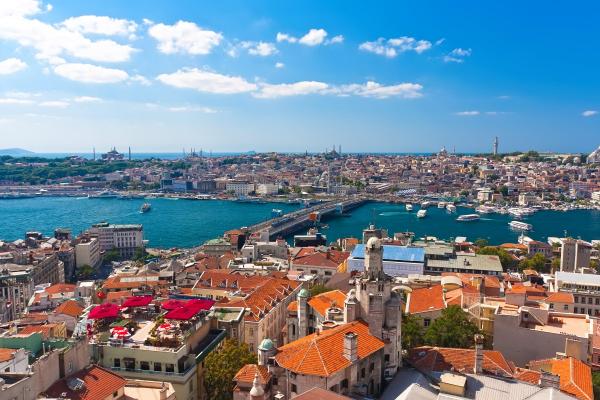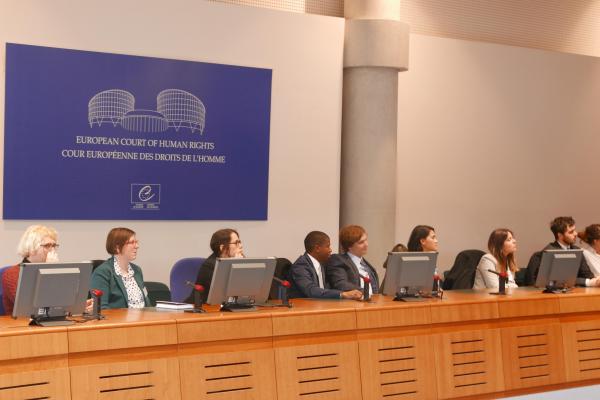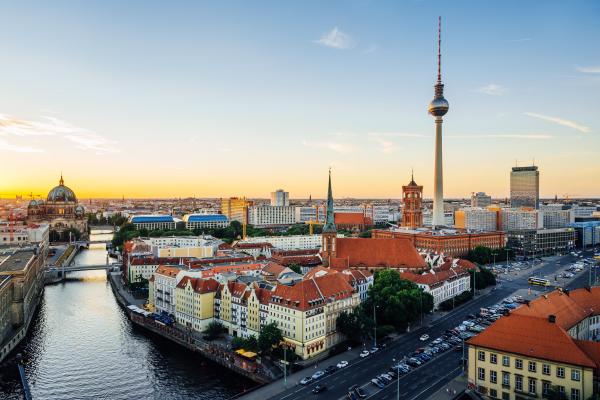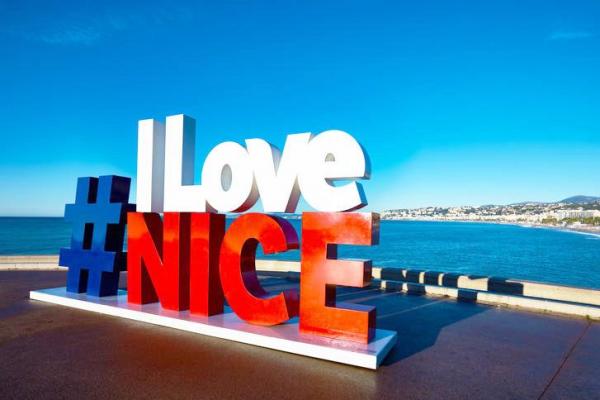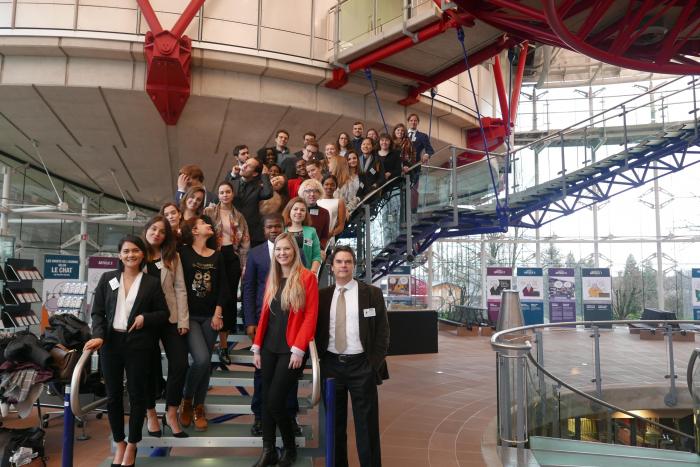
Master in Advanced European and International Studies - European Integration and Global Studies
-
My time here impacted me from a professional and personal perspective. Seeing the European Union and its strong regional and international cooperation was a unique experience for my friends and me! The whole coure gave us interesting points of view along with lectures and, of course, lifelong friendships.
← | →
Master
In Nice (France), Berlin (Germany), Roma (Italy) and another venue.
*Indicative price
Original amount in EUR:
8,900 €

Learn while you enjoy Europe!
-
Type
Master
-
Location
-
Duration
1 Year
-
Start date
April
other dates -
Credits
60
Do you want to travel in Europe? To visit most famous capitals and learn how European and international organisations work?
The European Integration and Global Studies programme (English) of the Master in Advanced European and International Studies (MAEIS) is an international, interdisciplinary and itinerant programme.
Following the slogan 'Learning and Living Europe', the participants move their place of studies from Berlin to Nice and then to Rome or Istanbul, depending on their choice. The institute also organises a study trip to Brussels, Luxembourg and Strasbourg.
The programme concludes with the defence of the Master thesis, and an optional internship (three months maximum).
Facilities
Location
Start date
Start date
Start date
Start date
Start date
About this course
The main objective of the MAEIS is to give students an overarching, encompassing vision of the political, social, economic and cultural challenges of today's world. It enriches them with a mind-broadening experience, enabling them to put their knowledge into practice with prestigious internships.
The Master in Advanced European and International Studies aims to educate the next generation of European and international decision-makers, and equip them with the necessary knowledge, skills and competences required on the job market of international and European organisations.
This graduate programme is aimed at students who have already completed a first degree (Bachelor's degree - minimum three years of study at university level).
Furthermore, students must have a very good knowledge of English.
You can find more detailed information about the admission requirements and apply online at: www.cife.eu
Students who successfully complete the programme are awarded two certifications at the end of the academic year:
- Master in Advanced European and International Studies: This is the diploma of CIFE as a private institute of higher education, granting 60 or 90 ECTS (with the optional internship) at Master level.
- The degree qualification ‘Chargé de mission en organisations européennes et internationales’ (Policy Officer in European and International Organisations), recognised by the French state as a degree at Master level (level 7 of the European Qualifications Framework EQF)
The Global Studies programme of the Master In Advanced European and International Studies is taught in English and provides students with insightful knowledge of European and international organisations. It takes place in important and vibrant cities, which makes it really easy for students to practically understand the importance of international relations. Graduates of the programme work for European institutions, international organisations, NGOs, national diplomacies, research institutes and the private sector, putting into practice the solid knowledge given by honoured lecturers and well-known field experts.
Candidates must submit a registration dossier to the CIFE secretariat
Yes. The professional title granted by the MAEIS is recognised by the French state as a degree at Master level - level 7 of European Qualifications Framework. The Master's degree is awarded by the CIFE as a private institution supported by the European Commission.
The programme is worth 60 ECTS. The European Credit Transfer System was established by the European Commission to ensure the recognition of qualifications at an international level.
The programme is open to all students from all disciplines who have completed a 3-year university cycle (Bachelor's degree).
The Master requires a general working proficiency in English.
We can either provide you with a list of addresses or organise dormitory accommodation upon the student's request.
This amount covers the study fees, the student's accommodation in Nice, the programme-related travel expenses, the simulations and professional skills workshops, conferences as well as access to local libraries.
A limited number of scholarships is available for particularly qualified candidates.
Reviews
-
My time here impacted me from a professional and personal perspective. Seeing the European Union and its strong regional and international cooperation was a unique experience for my friends and me! The whole coure gave us interesting points of view along with lectures and, of course, lifelong friendships.
← | →
Course rating
Recommended
Centre rating
Dalibor Dvorny
Subjects
- Conflict
- International Relations
- Governance
- Approach
- International
- Global
- Eurpopean
- Policies
- Politics
- Expertise
- Comparative Politics
- Political Science
- Economics
- History Politics
Teachers and trainers (1)
Laurent Baechler
Director of the MAEIS - European Integration and Global Studies branch
Laurent Baechler studied International Relations and Economics in Paris. He received his PhD in Economics in 2000. He taught at the Marmara University in Istanbul and at the Conservatoire National des Arts et Métiers in Paris, before joining the teaching staff of Science Po Paris in 2003. Since 2005, he has been working with CIFE - IE•EI and directs the module "Economy and Globalisation". Since 2014 He is the Editor-In-Chief of the acedemic journal "L'Europe en Formation". Since 2013 he is Director of the European Integration-Global Studies Branch.
Course programme
- 1. Conflict and Cooperation in the International System
A special focus will be attributed to inter-group violence and inter-state conflicts in both the Mediterranean and Eastern Europe: from the Western Balkans to Cyprus, from Israel to Palestine, from Ukraine to Syria. The module will focus at causes and dynamics of escalation and de-escalation, including international law and transitional justice in a multiperspective approach.
- 2. European Integration and External Action
We focus firstly on the historical development of European unification and then go on to analyse the Union’s institutions and study the basics of EU law. The last part of the program is devoted to the different policies of the EU and especially emphasises the challenges of enlargement.
- 3. Federalism, Multi-Level Governance and Conflict Resolution
The second development is multi-level governance, that can be conceived as an extension of federalism as it deals with any form of multi-tier institutional system. This cooperative/competitive approach has appeared to understand the institutional consequences of the process of globalisation in post-industrialised societies, and of the subsequent changing of nature of sovereignty in the relevant states. Eventually, federalism has become a tool of conflict resolution, in order to resolve violent conflicts all over the world.
It appears that all these developments share a same multi-tier conceptual framework, referred to as federalism. As such, they add themselves to older federal questions, such as political co-operation, democratic representation, minority issues and economic coordination. However, understanding the contemporary evolution of the federal meaning and of its main uses requires an innovative analytical thinking.
This module will bring together these new approaches and highlight the changing nature of federalism in an ever more complex world.
- 4. Economic Globalisation and Sustainable Development
Beyond a broad overview of the current state of the world economy, the objective is to understand how globalisation refers to the problem of international economic governance, and to describe the institutions, actors and processes at work when it comes to cooperation challenges in order to solve economic public goods management problems such as trade dynamism, financial stability or monetary cooperation.
- 5. Professional Skills Workshops
- Project cycle management
- Intercultural communication
- International mediation and negotiation
- Communicating on social media
- Drafting of position papers and policy recommendations
- Career workshop
Additional information
Master in Advanced European and International Studies - European Integration and Global Studies
*Indicative price
Original amount in EUR:
8,900 €



